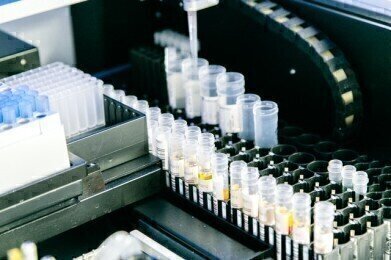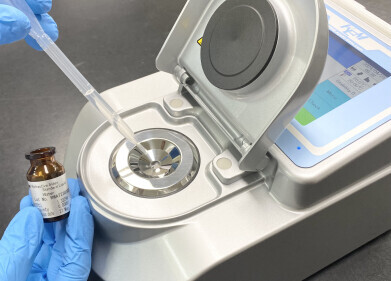Laboratory Products
What is Scientific AI?
Dec 18 2021
While chatbots and self-driving cars are some of the most widely recognised applications for artificial intelligence (AI), machine-learning technologies have made a decisive mark in the scientific world. Read on to discover more about scientific AI and the implications it has on everything from genomics to drug development.
Processing and managing the data “tsunami”
Technological advances have allowed scientists and researchers to unlock extraordinary amounts of data. Though without enough processing power, this data is meaningless. This is where artificial intelligence steps up. From neuroscience and disease diagnostics to astronomy and physics, AI is being used to process what experts refer to as a “tsunami” of data.
In the United States, a team of researchers has received a US$15 million grant from the National Science Foundation to launch the Accelerated AI Algorithms for Data-Driven Discovery Institute. Once established, the institute will focus on accelerating the development of AI algorithms for a range of physics branches, as well as neuroscience and computer science applications.
“I am very excited about the new Institute's opportunities for research in nuclear and particle physics,” says Boleslaw Wyslouch, Director at the Laboratory for Nuclear Science at the Massachusetts Institute of Technology. “Modern particle detectors produce an enormous amount of data, and we are looking for extraordinarily rare signatures. The application of extremely fast processors to sift through these mountains of data will make a huge difference in what we will measure and discover.”
Analysing complex genomic datasets
Artificial intelligence (AI) and machine-learning technologies have had incredible implications for genomics research. The development of computer systems with the capacity to carry out human tasks allows researchers to process, analyse and extract meaningful information from complex genomic datasets. For example, AI-powered analysis pipeline systems such as DeepVariant are being used to identify variants from sequence data with granular accuracy.
“We look at artificial intelligence methods as a powerful way to help make sense of really dense data types, and genomics is another dense data type,” says Joshua Denny, CEO of the All of Us Research Program founded by the US National Institutes of Health. “We’ve found that artificial intelligence and machine learning approaches have been transformational for many types of data. The scale of the genome is huge, so tools like AI can help us identify patterns in the data that may not be obvious.”
Managing sample libraries
Artificial intelligence has revolutionised how laboratories process information and manage large sample libraries. British-based company Ziath is a pioneer of laboratory automation, with its 2D datamatrix tubes, barcode scanners and sample management software offering a new level of efficiency. Senior Electrical Design Engineer Dr Alex Beaseley explores how the company is using artificial intelligence to solve real problems in ‘What is AI and how can it be applied to scientific instruments?
To find out more about the latest artificial intelligence breakthroughs, including the role it will play in everything from climate change to medicine, don't miss 'Laboratory AI - How Does It Help Scientific Research?'
Digital Edition
Lab Asia 31.2 April 2024
April 2024
In This Edition Chromatography Articles - Approaches to troubleshooting an SPE method for the analysis of oligonucleotides (pt i) - High-precision liquid flow processes demand full fluidic c...
View all digital editions
Events
Apr 28 2024 Montreal, Quebec, Canada
May 05 2024 Seville, Spain
InformEx Zone at CPhl North America
May 07 2024 Pennsylvania, PA, USA
May 14 2024 Oklahoma City, OK, USA
May 15 2024 Birmingham, UK






.jpg)











